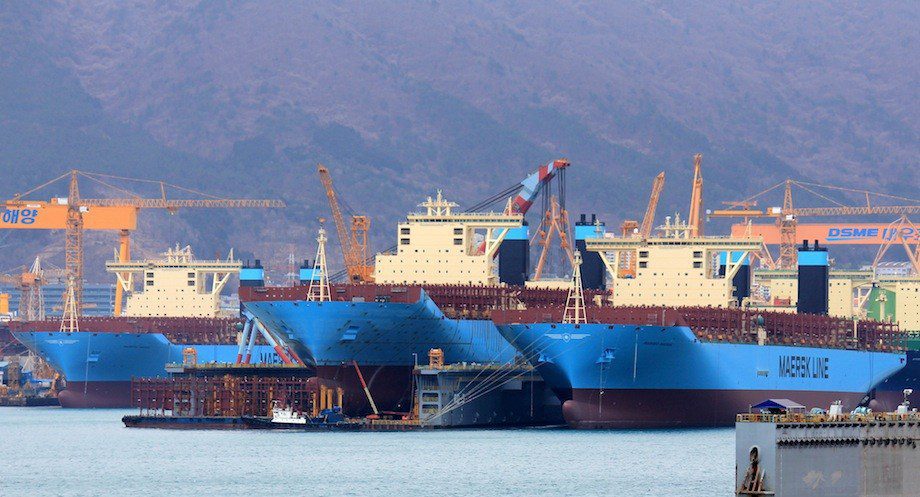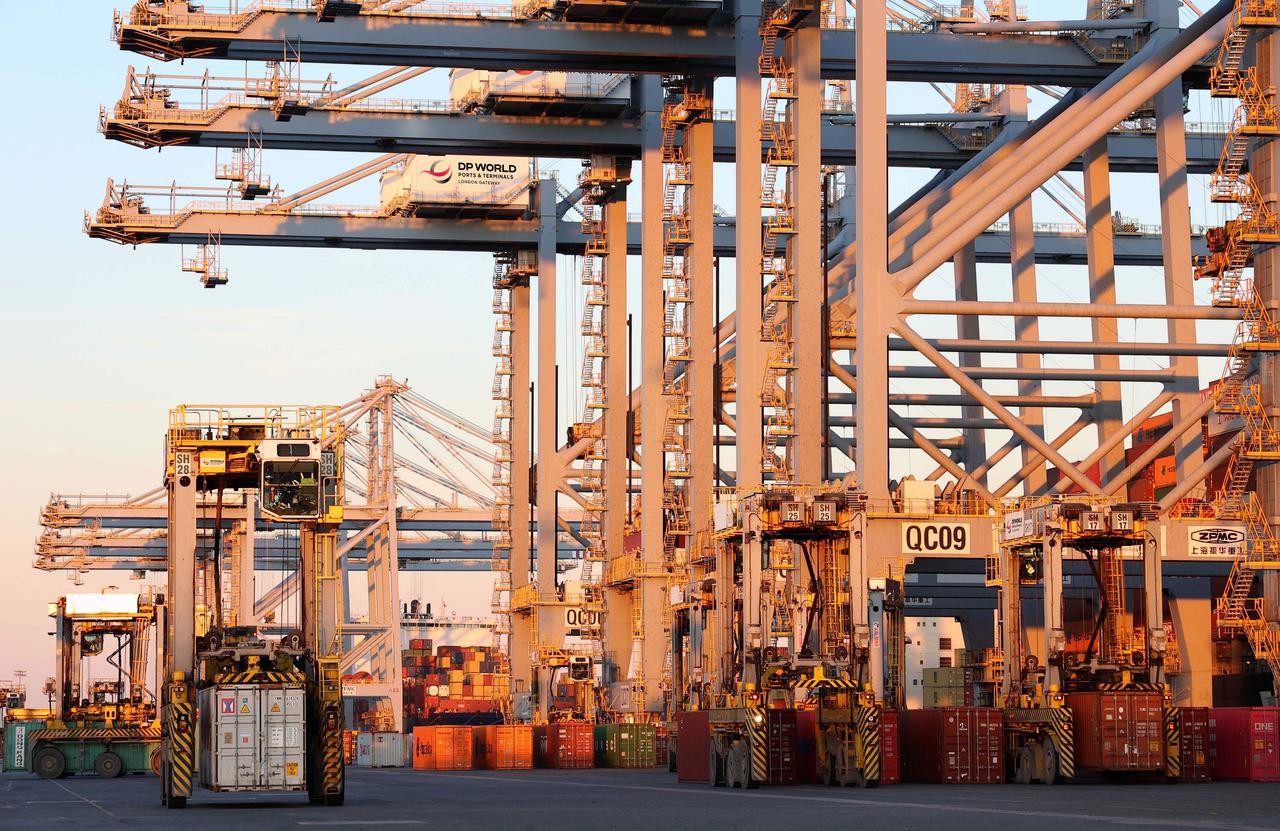Maersk Triple-E’s under construction at the DSME shipyards in 2014. File photo: Lappino
 By Joyce Lee and Cynthia Kim
By Joyce Lee and Cynthia Kim
SEOUL, Oct 31 (Reuters) – South Korea said on Monday it plans to establish a state-backed ship financing company with an initial capital of 1 trillion won ($871.73 million) to help improve the financial health of Korean shipping companies.
The government would provide financing of 6.5 trillion won ($5.67 billion) in total so that local shipping firms could acquire new vessels, said a government statement.
The measures were announced to support struggling local shipbuilding and shipping industries following the collapse of Hanjin Shipping Co Ltd, which applied for court receivership in August.
Daewoo Shipbuilding & Marine Engineering Co Ltd, one of the world’s three largest shipyards, all in South Korea, is currently suffering from a big drop in orders.
The trade ministry said Daewoo’s main creditor, state-backed Korea Development Bank (KDB), would take into consideration any future improvement in Daewoo’s operations and market conditions before potentially pursuing a sale or some other form of merger or acquisition of Daewoo.
As of now, there is no plan to sell Daewoo, a high-ranking financial regulator clarified in a press briefing on Monday.
New vessel orders won by South Korean shipbuilders between January-September fell by 87 percent compared to the same period in the previous year, steeper than a 72 percent drop in global orders, the trade ministry said.
The steeper drop in orders was partly due to less domestic orders compared with competitors in Japan and China, a high-ranking trade ministry official told reporters.
Following the recent ruling by the International Maritime Organization (IMO) on tighter sulphur regulations, the ministry said in the statement that it plans to increase the number of LNG bunkering terminals to more than three by 2020, as the demand of LNG as a marine fuel is expected to rise.
The IMO set the new requirements last week, which will see sulphur emissions fall from the current maximum of 3.5 percent of fuel content to 0.5 percent and they would come into effect from 2020.
The statement added, Seoul seeks to place an order for LNG bunkering vessels in 2017, led by the Korea LNG Bunkering Industry.
($1 = 1,147.1500 won) (Reporting by Cynthia Kim and Joyce Lee; Additional Reporting by Jane Chung; Editing by Sam Holmes and Michael Perry)
(c) Copyright Thomson Reuters 2016.

 Join The Club
Join The Club











